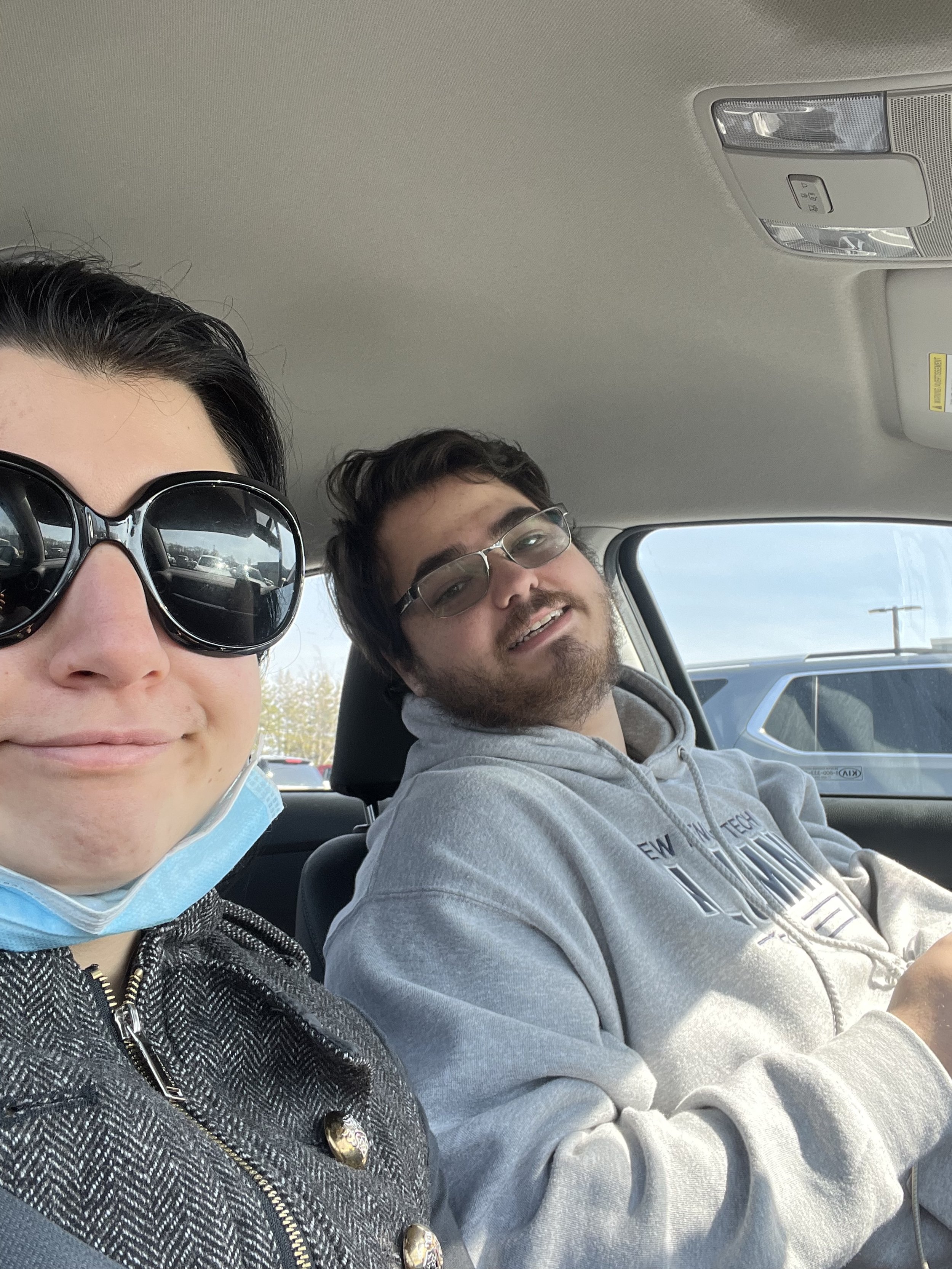My Journey with Sunflower Syndrome
by Devon Popolizio
I work as a therapist. That being said, working in the mental health field while dealing with personal mental health issues presents an extreme juxtaposition. How dare I give someone advice and encourage strategies when I myself have a difficult time?
Thomas Edison once said, “The chief function of the body is to carry the brain around.” However, if my body is not functioning, how do I keep my brain going? And if my brain isn’t working with me, how can I take care of my body? I had no control over my own body, and this article is a peek into the journey that I’ve faced over the last 20 years.
I had no control over my own body, and this article is a peek into the journey that I’ve faced over the last 20 years.
According to the World Health Organization, 50 million people worldwide have a diagnosis of epilepsy. Before 2017, I fit within these guidelines and received treatment. Despite fitting criteria evidenced by symptoms and magnetic resonance imaging (MRI), something was still amiss about the diagnosis I received almost 20 years ago. Was I having seizures? Yes. Unfortunately, there was more to it than that. My body seemed almost uncontrollable and every time I stepped outside I had zero control.
I started to have odd body movements that would eventually be considered tics. Initially, I would shake my head left to right. That turned into a compulsive desire to be outside and stare at the sun all the time. Ironically enough, the sun was the exact trigger for these tic episodes.
I had frequent visits with the neurologist. It was amazing how honest she was. This was a doctor who was supposed to have all the answers. I still remember when I was 11, she looked at me from behind her desk and said, “I don’t know what’s wrong with you”.
I was put on many medical trails. Some made me angry, most made me gain weight. So now, not only was I the kid at school with strange tics, I also became the stockiest kid in the school. Socializing was difficult and making friends felt impossible. This part of my journey would eventually lead to my declining mental health.
When I turned 16, I had a tonic-clonic seizure in the middle of the school day. These are the types of seizures where a person loses consciousness and experiences convulsions.
As I got older, my mental health declined to the extreme. When I turned 16, I had a tonic-clonic seizure in the middle of the school day. These are the types of seizures where a person loses consciousness and experiences convulsions. I had at least one a year. Lucky me, I became “that girl with epilepsy.” Despite having more of a social atmosphere at this age, the sad thoughts only increased.
“Nobody likes you.”
That narrative haunted my brain for years. It was something I focused so hard on that it made me feel desperate. I began counting my calories and skipping meals, which had a negative effect on my epilepsy. As I got older, I learned that not only does my overall physical health affect my seizures, but so does my mental health.. I would eventually realize the importance of being healthy, both on the inside and the outside.
While going through the journeys of growing and learning about myself, I eventually obtained an individual education plan for school, as my grades were suffering. My vulnerable self-concept made me associate the word “stupid” with my academics.
And at that point, not only was I feeling more insecure than ever, but spending time outside was still hard to do. And I love being outside. I enjoy nature, gardening, and even sports. My parents felt different. I would go outside, engage in tics, and I could immediately feel my parents' embarrassment. They wanted to hide their child. They were worried that the tics would reflect badly on them. We wanted more information on what this syndrome was that seemed so mysterious to everyone.
I switched neurologists. I had one appointment with the most prestigious neurologist in my immediate area. I told them that I felt like my seizure medication was increasing anxiety levels. They said “you should drink more tea, it’s relaxing and has no calories” and walked me out of the office. Immediately I told myself that I would never visit a doctor again, which led to my inconsistent appointment attendance. The years went by, and I eventually graduated college. But I still had no real solution for my tics.
That was about to change.
I learned about Sunflower syndrome roughly 6 to 8 years ago. There was a video of a young boy with the exact same body motions I had. Same tics, same mannerisms – everything. I watched the video feeling like I was looking in a mirror or having an out-of-body experience. To my knowledge, there was only one hospital researching this disorder. Pushing aside my personal feelings of doctors and hospitals, I connected with the hospital. I sat down with the doctors and medical students to go over my experience with this disorder. Not only was it enjoyable, it was the only time I felt listened to.
Per the Massachusetts General Hospital website, “Sunflower syndrome is a rare, epileptic disorder characterized by highly stereotyped seizures. During these seizures, individuals with Sunflower syndrome turn toward a bright light while simultaneously waving one hand in front of their eyes. This unique behavior is coupled with abrupt lapses in consciousness” (MGH, 2020).
This is exactly the motion I would exhibit. I would literally wave my hand in front of my eyes while staring at the sun. Finally, I had answers to my 20-year quest with this mysterious disorder. I was able to have my questions answered, participate in a study, and eventually meet other people with this disorder.
I now have support systems from every part of my life. I have befriended other patients with Sunflower syndrome and my family has developed a new understanding of what I have been dealing with. I’m able to actively spread awareness of this disorder, and provide a line of mental health support to those who need it. And now, my mental health is better than it ever has been, allowing me to confidently provide support to others who need it.
The journey has been long, but not without reward.
About the Author
Devon Popolizio currently has her Masters of Science in counseling and works as a therapist providing support to young adults and families that need it. She enjoys being outside, gardening, and being active. She is thankful for everyone who has provided support to her through the challenges she has faced, and has not let the dark times destroy her sunshine.



